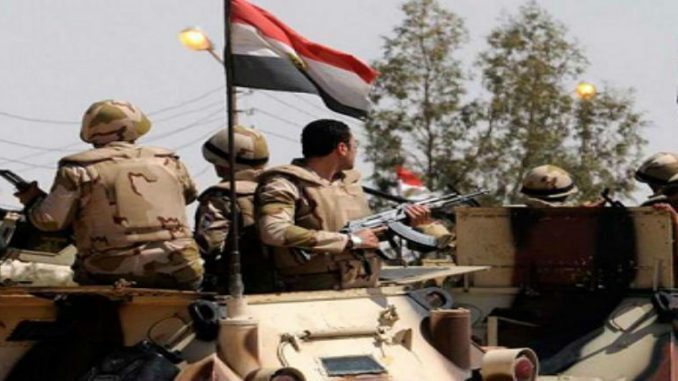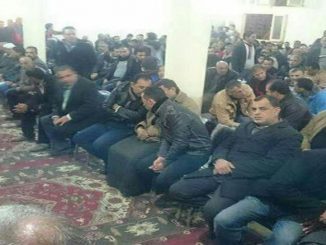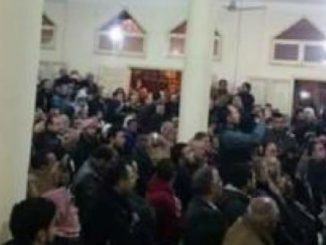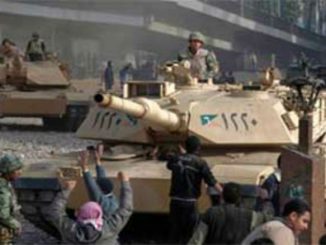
Human Rights Watch’s report on extrajudicial killings in Sinai stated that “security forces may have extrajudicially executed at least four and perhaps as many as 10 men in January 2017. They may have arbitrarily detained and forcibly disappeared the men and then staged a counter terrorism raid to cover up the killings.”
Deputy Middle East and North Africa director at Human Rights Watch Joe Stork said,“These apparent extrajudicial killings reveal total impunity for Egypt’s security forces in the Sinai Peninsula under Abdel Fattah al-Sisi’s counter-terrorism policies.”
He added, “Prosecutors need to conduct a full and transparent investigation to get to the bottom of what appear to be grave abuses.”
According to HRW report,the killings appear to fit a pattern of abuses against civilians by both military and internal security forces who are fighting the Islamic State (also known as ISIS) under the largest deployment of Egyptian troops in Sinai since Egypt’s 1973 war with Israel.
Since 2013, fighting in North Sinai has left hundreds dead including civilians, security force members, and alleged ISIS fighters. Sinai Province,ISIS affiliated group, has also killed civilians either for alleged collaboration with the authorities or because they were Christians.
On January 13, the Interior Ministry claimed in a statement that its counter-terrorism forces had tracked a group of suspected ISIS fighters to an abandoned house in al-Arish, a town on the northern Sinai coast, earlier that day and were preparing to raid the house when they came under fire.
The troops returned fire and killed all 10 suspects inside, according to the statement . The ministry named six of the dead men and accused them of participating in killings and other attacks on security forces.
On the same day, a short video, which was posted on YouTube, was released by the ministry purporting to show the raid itself.
The edited clip showed at least eight commandos approaching a building, two of them firing at a man on the ground outside, and six dead men in civilian clothes lying in various rooms inside the building, surrounded by weapons, fresh pools of blood, and walls with bullet holes.
However, Al-Arish residents said that those who were killed had been in police custody.
Human Rights Watch interviewed relatives of three of the dead men, “all said that the Interior Ministry’s security forces had arrested the men without warrants in October and November 2016, months before the alleged January raid took place.”
Human Rights Watch report relied on multiple sources of evidence including documents, interviews with relatives, and an edited video of the purported raid made public by the authorities suggests that police arrested at least some of the men months before the alleged gunfight at a house in North Sinai and that the raid itself was staged.
It is worth to mention that Journalists and human rights groups are rarely able to impalement credible reports of abuse because the government denies them access to North Sinai.
In addition, the government releases little information about such operations and threatens journalists who report about them.
In August, Abdel Fattah al-Sisi issued a law that provides for a fine of up to 500,000 Egyptian pounds (US$64,000) and a year-long work ban for anyone who reports information about terrorism that contradict the government.
The situation in Sinai has escalated recently when Egyptians in al-Arish, a city in northern Sinai, threatened to begin civil disobedience to protest against the extrajudicial killing of 10 youths by security forces.
Al-Arish residents met and issued a statement demanding the release of youths detained without charge and the trial of anyone who took part in the alleged extrajudicial killings of their sons.
A video of the meeting that circulated online shows around 100 people gathered in the home of a prominent al-Arish family, according to the Associated Press.
The residents also labelled Egypt’s interior minister “an enemy of the state,” and called on Sinai lawmakers to quit parliament in protest as well as the formation of a “popular committee” that would be tasked with organizing future protests, according to their statement.
Al-Arish leader said at the meeting, “Listen ruler of Egypt [Abdel Fattah al-Sisi], the sons of Al-Arish and the sons of Sinai are one hand.”
He added, “They will select a committee to speak on their behalf. They don’t feel that their sons are safe in your jails. They want all of them released immediately, especially those who have no court rulings issued against them.”
He also said, “They also want to bring to justice all those who killed our sons. Otherwise, we will bring them to justice our way.”
Since Abdel Fattah al-Sisi reached power in a military coup in 2013 that overthrew Egypt’s first democratically elected President Mohamed Morsi, Sinai people have been the victims of human rights violations as well as eviction from their homeland.
The residents of the northern Sinai region often complain of heavy-handed tactics by security forces, including collective punishment following particularly deadly attacks against government forces.
Sinai Province has targeted Egypt’s security forces in various attacks, mostly roadside bombings, and ambushes, as well as operations against security checkpoints.
As a result, the Egyptian armed forces launched an excessive campaign to uproot ISIS from the eastern peninsula bordering Israel and the Palestinian Gaza Strip.
However, Sinai civilians have increasingly been targeted in the crossfire between security services and Islamic militants.
In addition, the Egyptian government is accused of killing suspects in detention before claiming they were killed in shootouts.
According to a Human Rights Watch, the government said that its counter-terrorism operations in North Sinai killed at least 3,091 “terrorists” between January and July 2015.
According to Arab Organization for Human Rights, a London-based organization, reported that more than 361 people were killed in Sinai by the Egyptian army in 2014 for allegedly being wanted for terrorist activities.
In addition, nearly 1481 people have been arrested for the same reasons without a shred of evidence or legal due process, the organization said.
Moreover, the Egyptian armed forces was accused by violating international law for the mass home demolitions and forced eviction of about 3,200 families in the Sinai Peninsula over the past two years,according to a report released by Human Rights Watch in 2015.
The 84-page report, “Look for Another Homeland,” documents the Egyptian government’s failure to provide adequately for residents during and after evictions in North Sinai. “Since July 2013, ostensibly to eliminate the threat of smuggling tunnels, the military has arbitrarily razed thousands of homes in a once-populated buffer zone on the border with the Gaza Strip, destroying entire neighborhoods and hundreds of hectares of farmland,” the rights group said.
“Destroying homes, neighborhoods, and livelihoods is a textbook example of how to lose a counterinsurgency campaign,” said Sarah Leah Whitson, Middle East and North Africa director.



